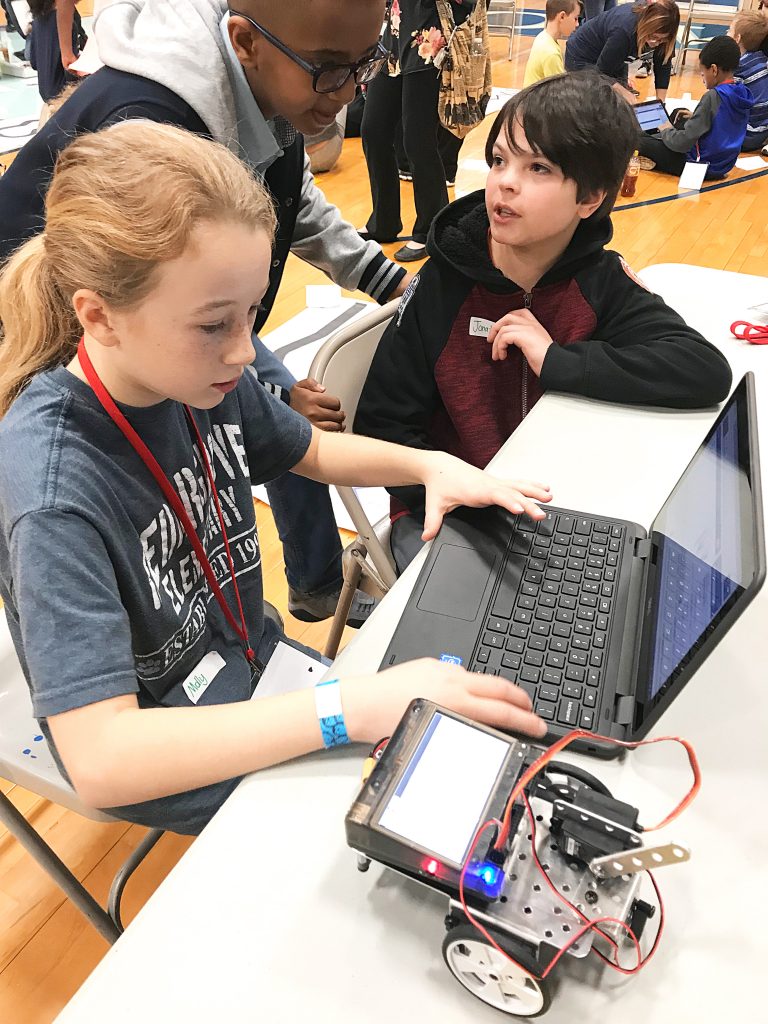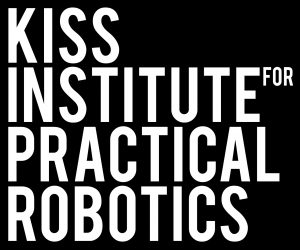Junior Botball Challenge
Impact
2017-18 implementations include over 1,400 schools in 29 states (58% in-class), impacting ~28,000 students (56% female) and ~3,500 educators. External and internal evaluation data indicate significant increases in student STEM interest, identity and efficacy and improvement in attention to detail, perseverance on task and 21st century skills including; problem solving, critical thinking and communication with both peers and adults. 80% of participating educators indicate they now routinely incorporate computational thinking and engineering into their daily lessons with 98% of them planning on continuing to participate in future years.
Accomplished
- Need Accomplished
- Evaluation Accomplished
- Sustainability Developing
- Replication & Scalability Developing
- Partnerships Accomplished
- Capacity Accomplished
- Challenging & Relevant Content Developing
- STEM Practices Accomplished
- Inspiration Accomplished
- Under-Represented Groups Accomplished

The JBC program is now the center-point of our district’s STEM student experience. We have been able to see a positive effect in so many of our students and families with the critical and computational thinking opportunities that the program exposes our students to. It is easy for our teachers to implement and the students love participating.
STEM Director, Noble Public Schools
Design Principles
The programs in this database clear a high bar. STEMworks reviewed each program against the Design Principles for Effective STEM Philanthropy. Programs must be Accomplished () across all Design Principles, or be Developing (
) in a maximum of three areas.
Overarching Principles
-
Need Accomplished
Identify and target a compelling and well-defined need.
-
Evaluation Accomplished
Use rigorous evaluation to continuously measure and inform progress towards the compelling need identified.
-
Sustainability Developing
Ensure work is sustainable.
-
Replication & Scalability Developing
Demonstrate replicability and scalability.
-
Partnerships Accomplished
Create high impact partnerships.
-
Capacity Accomplished
Ensure organizational capacity to achieve goals.
STEM Principles
-
Challenging & Relevant Content Developing
Offer challenging and relevant STEM content for the target audience.
-
STEM Practices Accomplished
Incorporate and encourage STEM practices.
-
Inspiration Accomplished
Inspire interest and engagement in STEM.
-
Under-Represented Groups Accomplished
Identify and address the needs of under-represented groups.
Program Overview
The JBC program is a sustainable Computer Science (CS) and engineering, design-focused STEM program. This program is designed to support and empower Pre K- 12 grade educators with zero experience teaching computer science or engineering in teaching their classroom students integrated computer science, coupled with engineering design concepts. The strategy revolves around three main components: educator friendly reusable autonomous robotics equipment, a standards-aligned curriculum and professional development.
Funders and Partners
NASA, iRobot, Dell Corporation, Infosys Foundation, Muscogee (Creek) Nation, Oklahoma Aeronautics Commission, Carnegie Mellon University Qatar, George Mason University, Loyola University of Chicago, Southern Illinois University Edwardsville, University of Maryland, University of Massachusetts Lowell, University of Oklahoma, University of San Diego, University of Southern California, Vienna Institute of Technology
